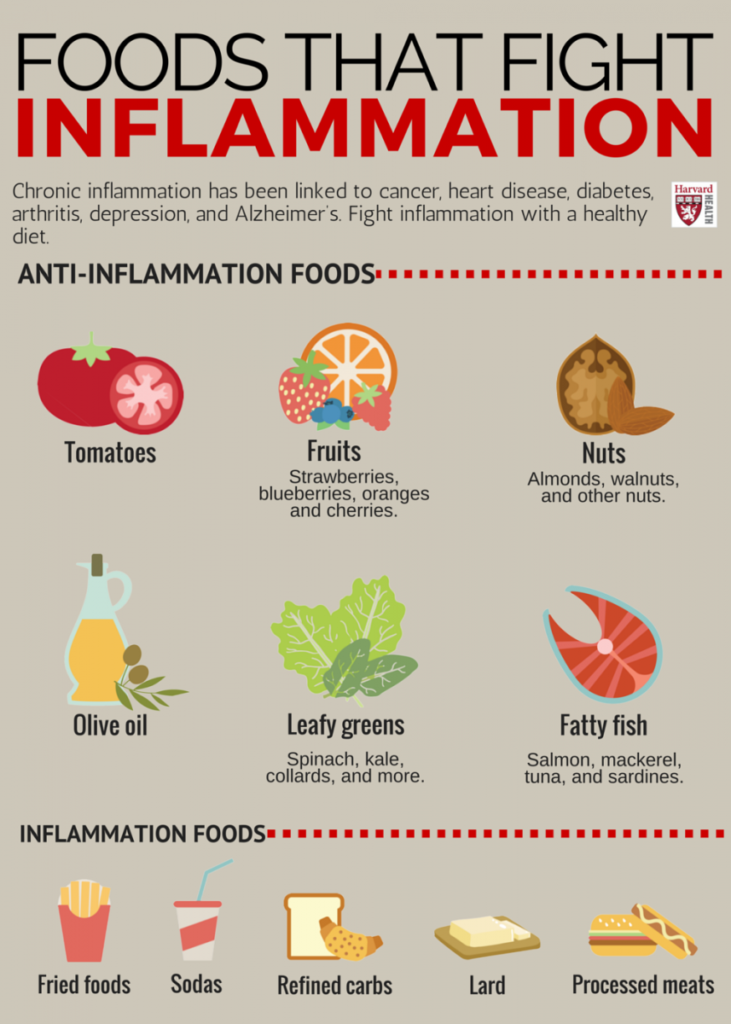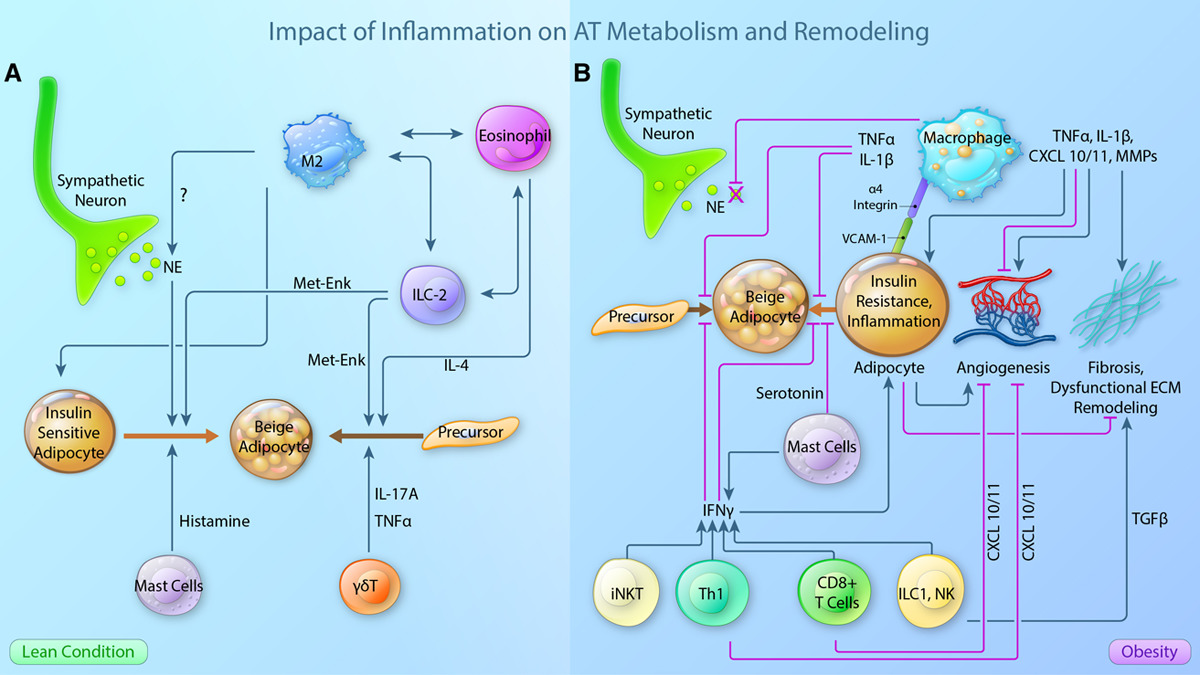Inflammation is the body’s natural response to injury, infection, or stress, designed to protect and heal damaged tissue. However, when inflammation becomes chronic, particularly as a result of metabolic imbalances, it can contribute to various diseases and health conditions. Metabolic inflammation, also referred to as metaflammation, is a type of low-grade, chronic inflammation that is triggered by metabolic dysfunction. This condition has garnered increasing attention due to its association with chronic diseases such as obesity, diabetes, and cardiovascular disease. In this article, we will explore the causes of metabolic inflammation, its effects on general health, and natural approaches to prevention and treatment.
Causes of Metabolic Inflammation
1. Poor Diet and Nutrient Imbalance
One of the primary contributors to metabolic inflammation is an unhealthy diet. Diets high in refined carbohydrates, unhealthy fats (such as trans fats), and added sugars can lead to insulin resistance, weight gain, and an increase in inflammatory markers. For instance, excessive consumption of processed foods and sugary beverages can overwhelm the body’s metabolic system, leading to fat accumulation in tissues, particularly visceral fat, which is a key driver of inflammation.
Moreover, diets deficient in essential nutrients such as omega-3 fatty acids, antioxidants, and fiber can impair the body’s ability to regulate inflammation. Omega-3 fatty acids, found in fatty fish, nuts, and seeds, play an important role in producing anti-inflammatory molecules, while antioxidants from fruits and vegetables help neutralize free radicals that contribute to inflammation.
2. Obesity and Adipose Tissue Dysfunction

Obesity is a significant risk factor for metabolic inflammation. Excessive accumulation of fat, particularly in the abdominal region, alters the function of adipose (fat) tissue, leading to the release of pro-inflammatory cytokines. Adipose tissue, once viewed as merely a storage site for fat, is now recognized as an active endocrine organ that secretes hormones and signaling molecules. In the context of obesity, these molecules—such as tumor necrosis factor-alpha (TNF-α) and interleukin-6 (IL-6)—trigger chronic low-grade inflammation throughout the body.
Furthermore, adipose tissue dysfunction in obesity can lead to insulin resistance, which exacerbates metabolic inflammation. As the body’s cells become less responsive to insulin, blood sugar levels rise, contributing to further oxidative stress and inflammation.
3. Sedentary Lifestyle
Physical inactivity is another major cause of metabolic inflammation. A sedentary lifestyle promotes weight gain, muscle atrophy, and poor circulation—all of which contribute to metabolic dysfunction. Regular physical activity, on the other hand, has been shown to lower inflammatory markers, improve insulin sensitivity, and promote a healthier metabolic state. The relationship between exercise and inflammation is bidirectional: just as inactivity promotes inflammation, regular exercise can significantly reduce it.
4. Gut Microbiota Imbalance
Emerging research highlights the role of the gut microbiota in regulating inflammation. The gut is home to trillions of microorganisms that play crucial roles in digestion, immunity, and metabolic regulation. When the balance of gut bacteria is disrupted—often due to poor diet, antibiotic overuse, or stress—a condition known as dysbiosis occurs. Dysbiosis has been linked to increased intestinal permeability, allowing harmful substances such as endotoxins to enter the bloodstream and trigger systemic inflammation.
Moreover, the gut microbiota directly influences the production of short-chain fatty acids (SCFAs), which have anti-inflammatory properties. A diet rich in fiber from whole grains, vegetables, and legumes can nourish beneficial gut bacteria and promote SCFA production, thereby reducing inflammation.
5. Chronic Stress
Chronic psychological stress is another significant contributor to metabolic inflammation. Stress activates the hypothalamic-pituitary-adrenal (HPA) axis, leading to the release of cortisol, the body’s primary stress hormone. While cortisol has anti-inflammatory effects in the short term, chronic stress can dysregulate cortisol production and lead to prolonged inflammation. Additionally, stress promotes unhealthy behaviors, such as overeating and lack of exercise, which further exacerbate metabolic dysfunction.
Effects of Metabolic Inflammation on Health and Physiology
1. Cardiovascular Disease
Metabolic inflammation plays a central role in the development of cardiovascular disease (CVD). Chronic inflammation damages the inner lining of blood vessels, known as the endothelium, making it more prone to atherosclerosis—the buildup of fatty plaques in arteries. Over time, these plaques can rupture, leading to blood clots that increase the risk of heart attacks and strokes. Additionally, inflammatory cytokines such as C-reactive protein (CRP) are elevated in individuals with CVD, indicating that inflammation is both a cause and a consequence of heart disease.
2. Type 2 Diabetes
The relationship between metabolic inflammation and type 2 diabetes is well established. Chronic inflammation contributes to insulin resistance, a hallmark of type 2 diabetes. As pro-inflammatory cytokines interfere with insulin signaling, glucose uptake by cells is impaired, leading to elevated blood sugar levels. Over time, this can result in pancreatic beta-cell dysfunction, further worsening diabetes. Studies have shown that reducing inflammation can improve insulin sensitivity and glycemic control in individuals with diabetes.
3. Obesity
As previously mentioned, obesity and metabolic inflammation are closely linked. In obese individuals, adipose tissue produces higher levels of inflammatory cytokines, which contribute to insulin resistance, impaired metabolism, and further weight gain. This creates a vicious cycle where inflammation promotes obesity, and obesity exacerbates inflammation. In addition to contributing to metabolic dysfunction, obesity-related inflammation also increases the risk of other conditions, such as non-alcoholic fatty liver disease (NAFLD) and certain cancers.
4. Cognitive Decline
Recent research has uncovered a connection between metabolic inflammation and cognitive decline. Inflammation can damage neurons and disrupt signaling pathways in the brain, contributing to conditions such as Alzheimer’s disease and other forms of dementia. Additionally, insulin resistance has been linked to neuroinflammation, which affects brain regions involved in memory and learning. This emerging area of research underscores the importance of managing metabolic inflammation to protect long-term brain health.
5. Immune Dysfunction
Chronic inflammation has a profound effect on the immune system. Over time, the constant activation of immune cells can lead to immune exhaustion, making the body more vulnerable to infections. Additionally, metabolic inflammation can impair the body’s ability to mount an appropriate immune response to pathogens, increasing the risk of chronic infections and autoimmune diseases.
Prevention of Metabolic Inflammation
1. Adopt a Balanced, Anti-Inflammatory Diet

A diet rich in whole, nutrient-dense foods is one of the most effective ways to prevent metabolic inflammation. Emphasizing a variety of fruits, vegetables, whole grains, lean proteins, and healthy fats can provide the body with essential vitamins, minerals, and antioxidants to combat inflammation. Omega-3 fatty acids, found in fatty fish, flaxseeds, and walnuts, are particularly beneficial for reducing inflammation. In contrast, avoiding processed foods, sugary beverages, and refined carbohydrates can help prevent the metabolic imbalances that lead to inflammation.
2. Engage in Regular Physical Activity
Physical activity is a powerful anti-inflammatory tool. Moderate-intensity exercises such as walking, swimming, or cycling can reduce inflammatory markers and improve metabolic health. Additionally, regular strength training helps preserve muscle mass and improve insulin sensitivity, both of which are important for preventing metabolic inflammation. Aim for at least 150 minutes of moderate aerobic exercise per week, along with strength training exercises twice a week.
3. Manage Stress and Practice Mindfulness
Since chronic stress is a key contributor to metabolic inflammation, managing stress is crucial for prevention. Techniques such as meditation, yoga, deep breathing, and mindfulness have been shown to reduce stress hormone levels and improve inflammatory markers. Incorporating regular stress management practices into daily life can support both mental and physical well-being.
4. Optimize Gut Health
Supporting a healthy gut microbiota is essential for preventing metabolic inflammation. Consuming probiotic-rich foods like yogurt, kefir, and fermented vegetables can help maintain a balanced gut microbiome. Additionally, prebiotic fibers found in foods like garlic, onions, and asparagus can nourish beneficial bacteria. Avoiding unnecessary antibiotics and incorporating a diverse array of fiber-rich foods into the diet can help support optimal gut health.
Treatment of Metabolic Inflammation with a Natural Approach
1. Anti-Inflammatory Supplements
Several natural supplements have been shown to reduce inflammation and improve metabolic health. For example, omega-3 fatty acids, which are available as fish oil supplements, can help lower the levels of pro-inflammatory cytokines. Curcumin, the active compound in turmeric, is another potent anti-inflammatory agent that has been shown to improve insulin sensitivity and reduce inflammation in individuals with metabolic syndrome. Other beneficial supplements include green tea extract, resveratrol, and magnesium, all of which have anti-inflammatory properties.
2. Herbal Remedies
Certain herbs, such as ginger, boswellia, and ashwagandha, have been used in traditional medicine for their anti-inflammatory properties. These herbs can help reduce systemic inflammation and support metabolic health. Ginger, for instance, has been shown to lower inflammatory markers and improve insulin sensitivity in clinical studies. Incorporating these herbs into the diet or taking them as supplements may offer additional support in managing metabolic inflammation.
3. Adequate Sleep and Recovery
Sleep is a critical factor in regulating inflammation and overall metabolic health. Poor sleep quality or insufficient sleep can increase the levels of inflammatory markers and exacerbate insulin resistance. Ensuring adequate, restful sleep—typically 7-9 hours per night—can help the body recover and reduce inflammation. Prioritizing sleep hygiene, such as maintaining a consistent sleep schedule and creating a relaxing bedtime routine, can support better metabolic outcomes.
Conclusion
Metabolic inflammation is a silent yet powerful driver of many chronic diseases that affect millions of people worldwide. Understanding its causes—such as poor diet, obesity, sedentary lifestyle, gut dysbiosis, and chronic stress—can help individuals take proactive steps to prevent and manage this condition. By adopting a balanced, anti-inflammatory diet, engaging in regular physical activity, managing stress, and supporting gut health, individuals can reduce inflammation and improve overall health. Natural treatments, including supplements, herbs, and lifestyle changes, offer additional support in combating metabolic inflammation. As research continues to uncover the intricate links between metabolism and inflammation, it becomes increasingly clear that addressing metabolic inflammation is crucial for achieving long-term health and well-being.
